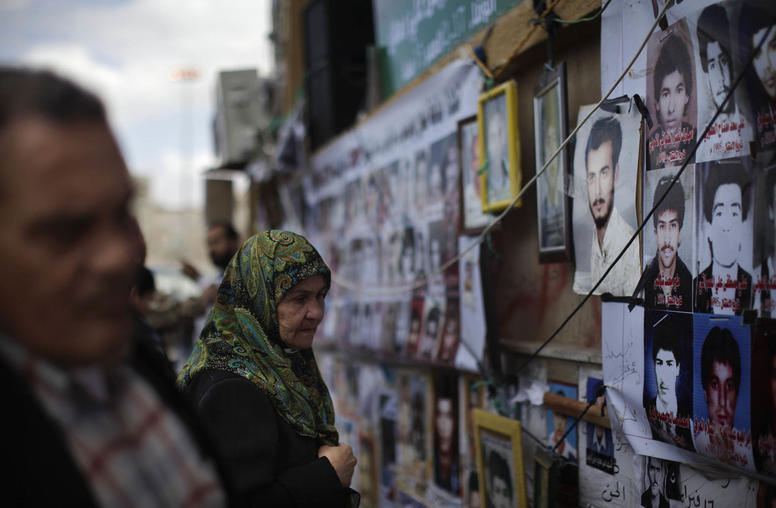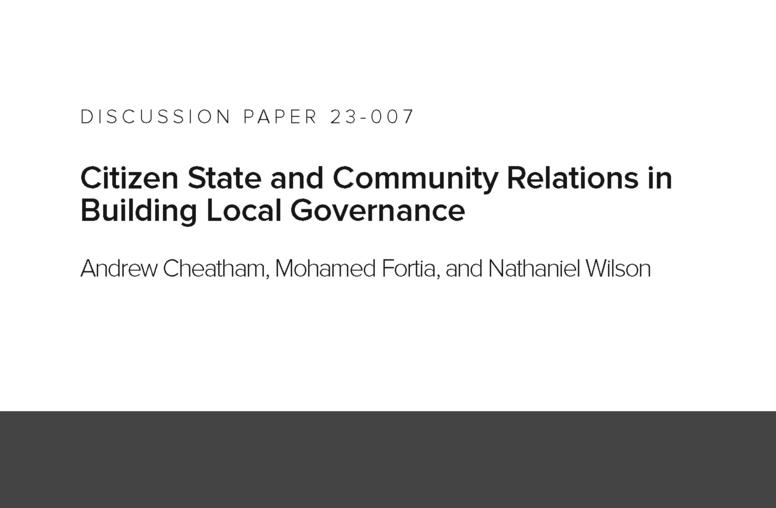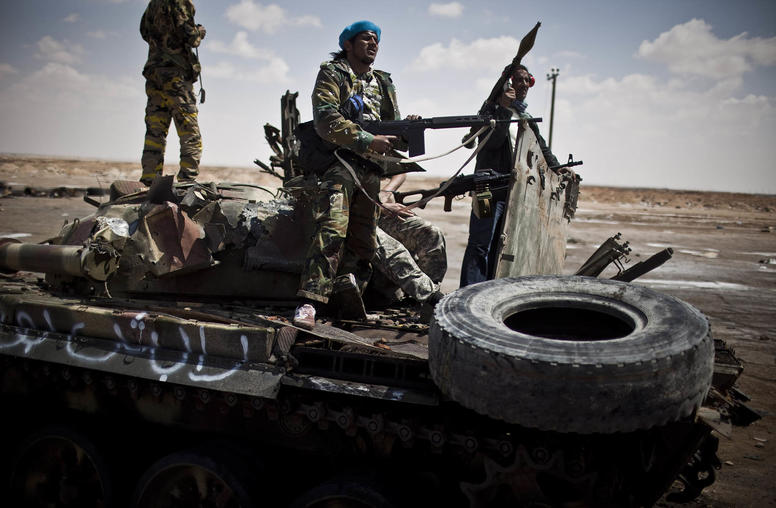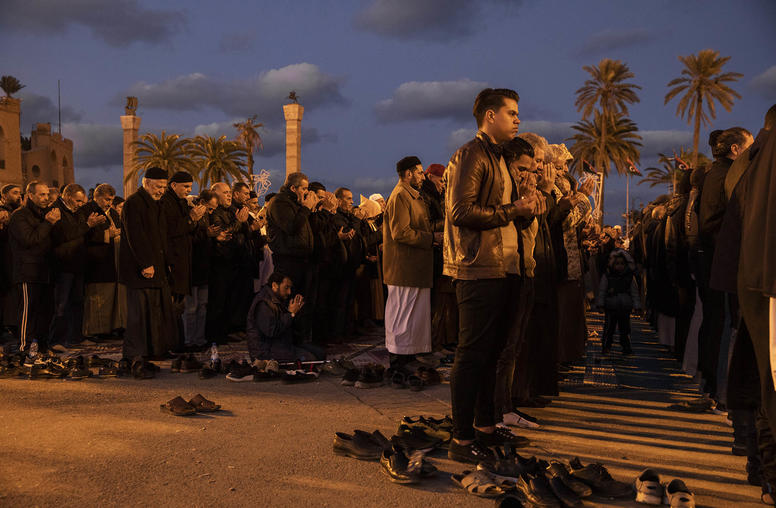Military Action in Libya
USIP’s Paul Hughes weighs the benefits and pitfalls of greater military action in Libya.
April 20, 2011
USIP’s Paul Hughes weighs the benefits and pitfalls of greater military action in Libya. Experts from the U.S. Institute of Peace (USIP) are closely following developments throughout the Middle East and North Africa. Read more.
- What are the pros and cons of intensifying NATO’s military involvement in Libya?
- Since the European Union (EU) on April 18 outlined a plan to send European troops to Misrata, is it possible that NATO would want to put boots on the ground there as well? What would be the role of the EU troops? What are the pros and cons of that strategy?
- Would the United Nations mandate permit such a move by the EU and NATO? What does the mandate allow?
- How do you see this playing out?
What are the pros and cons of intensifying NATO’s military involvement in Libya?
An increasing NATO involvement in Libya through Operation UNIFIED PROTECTOR will have both benefits and pitfalls; the challenge for the North Atlantic Alliance Organization (NATO) is to determine the long-term impact of both the intended and unintended consequences.
Currently, Libyan rebel forces are clamoring for NATO to do more than just conduct “No Fly Zone” (NFZ) operations. The withdrawal of U.S. combat attack air options has weakened NATO’s NFZ capabilities because it removed two powerful weapons from the scene – the AC-130 gunship and the A-10 ground attack aircraft, both of which are very precise and effective in attacking Libyan tanks. The rebels really want to see the introduction of ground forces because they recognize that a NFZ operation will not empower them to overthrow Col. Muammar al-Qaddafi’s regime. At the present time, NATO does not appear inclined to consider the introduction of a ground combat force.
NATO currently provides combat forces to operations in both Libya and Afghanistan. In both cases, agreements for current force levels were only achieved after extensive and complex discussions within the North Atlantic Council, NATO’s governing body. Further involvement in either operation will require gaining the consensus agreement of all 28 member states.
Since the European Union (EU) on April 18 outlined a plan to send European troops to Misrata, is it possible that NATO would want to put boots on the ground there as well? What would be the role of the EU troops? What are the pros and cons of that strategy?
The EU has announced it is willing to provide a ground force for operations inside of Libya for humanitarian assistance purposes. Additionally, the United Kingdom (UK) announced its willingness to provide military advisors to the rebel force.
The EU and NATO are overlapping organizations with most of NATO’s member states also possessing EU member status. So the offer to put EU forces on the ground in Libya will most likely involve the militaries of NATO states. At question is the command and control arrangement between the ongoing NATO operation and a new EU effort. Ideally, EU and NATO would reach an agreement in which the new EU effort would come under the existing command structure of NATO’s Operation UNIFIED PROTECTOR. Such a move would greatly reduce the friction and confusion of having two separate military operations underway in the same space, make for more effective results, and increase the probability of mission success.
Would the United Nations mandate permit such a move by the EU and NATO? What does the mandate allow?
The EU has made clear its need for a request from the U.N. Security Council before it would undertake its proposed operation. Even if requested, the EU effort would be limited to humanitarian assistance activities, such as providing security, medical assistance, food and water, and evacuation for the civilian population of Misrata. However, as is often the case with humanitarian assistance operations in a combat zone, the intervening force creates winners and losers. One of the unintended consequences of an EU humanitarian assistance operation might be the provoking of Qaddafi to retaliate against EU states that support the intervention. The EU force would likely meet resistance from Qaddafi’s forces on the ground in Libya during the course of any operation and any such engagement would produce unintended consequences as well. The EU must be ready to stand ready, both politically and militarily, to sustain its will and capability to protect the Libyan civilian population.
How do you see this playing out?
The situation in Libya is reaching a crisis point that requires immediate attention. Well passed the stage of crisis management, Libya is now in a state of civil war that will end when one side or the other concedes defeat.
The West has made it clear that many of its states want Qaddafi to surrender power and leave Libya. The rebels also seek this outcome. But Qaddafi shows no sign of leaving and thus, Libya will likely fall into a de facto partition. Such an event will place increased pressure on both Tunisia and Egypt when they are facing many internal issues of their own, encourage those who oppose the sweeping reforms of the Arab Spring to push back on the people’s newfound liberties, and likely lead to the creation of areas of non-governance in the mountains of Libya because of Qaddafi’s weakened condition after the war. Such developments bode ill for the region and Europe. The pressure placed on NATO, the EU and the region will continue to mount, thus destabilizing the region further. Whether one supported or opposed the initial entry of NATO into this civil war, the fact is we’re now involved.
For the people of Libya, this war needs to be brought to as swift a conclusion as possible and the work of peacebuilding must then begin.



